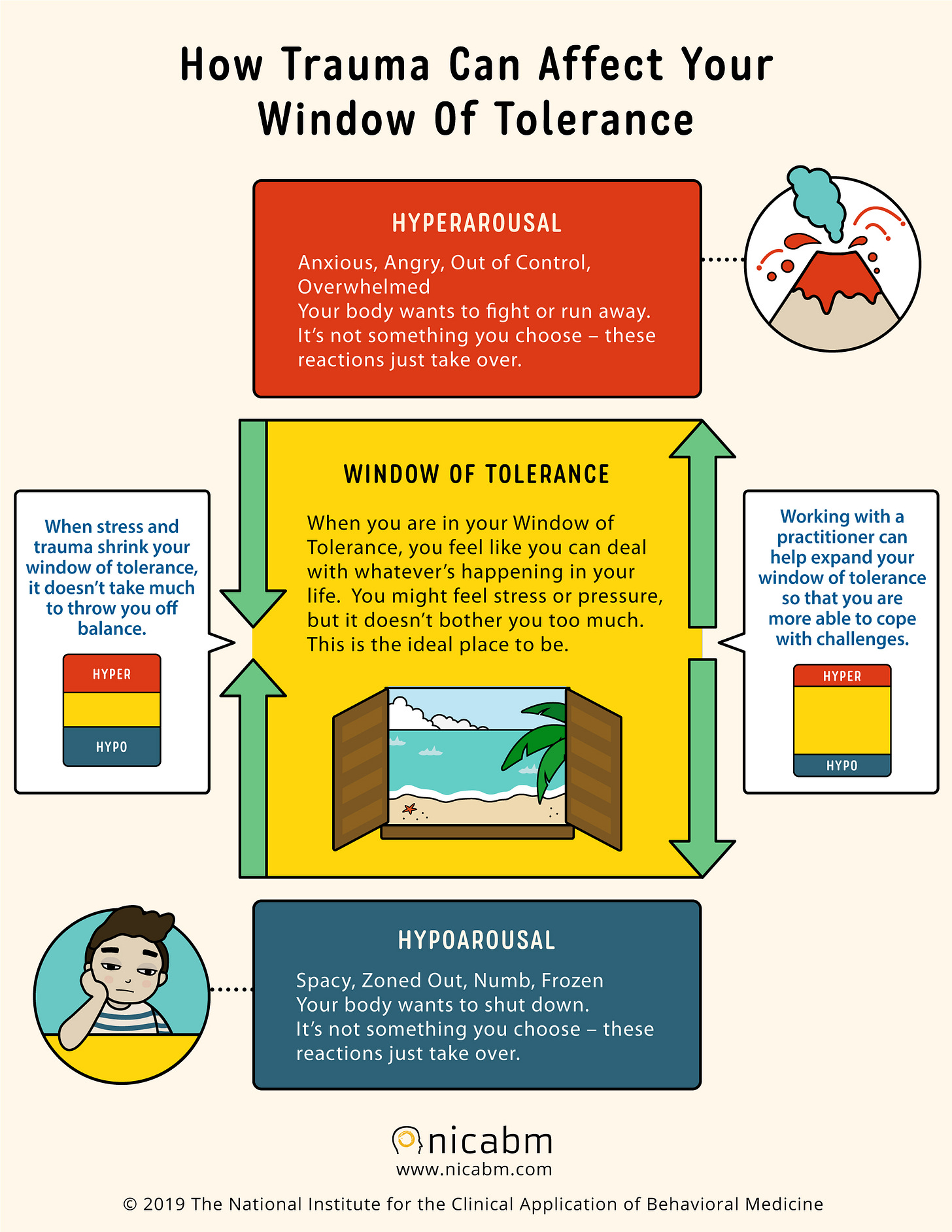Thank you so much for subscribing to the paid part of my Substack: Permission to feel. Each week you’ll receive an email with some information about a particular feeling and details of how you can process/manage it.
I’d thought I’d start with something that is familiar to us all: stress! The video above is an excerpt from my show ‘Stop the world I want to get off’ and was written during Lockdown (oops, sorry to mention it) when we were all buying loo roll mountains and queueing up at petrol stations. The reason I’m sharing is not down to my unabashed self promotion, but rather the key message which is: what we resist, persists, to quote Carl Jung.
Pick your poison: the to-do list is building; you’re stuck in traffic; your credit card is maxed out,;you’re ruminating on that argument you just had with your partner and you’ve just looked at your social media and got an update on climate change/social inequality/war/pestilence/armageddon; all of the above (wow, bad day). Your chest feels tight and you can’t quite catch your breath and you don’t know what will make it better…
When we are stressed out we have a physical reaction as cortisol and adrenaline pump around our bodies to try and deal with the threat, but we also have an emotional reaction which is more tied to the story that we are telling ourselves.
So it’s important to deal with both the bodily response to stress and the way our imagination can create all sorts of stress for us, but first, a bit of background.
Our ability to manage stress depends on something called our ‘window of tolerance’ which is a concept created by clinical professor of psychiatry Dr. Dan Siegel. The ‘window of tolerance’ is the Goldilocks state where you have enough energy and capacity to get things done, but you are not feeling overwhelmed, under pressure or like the cat in the picture above. Your body tells you this by your breathing being regular, your openness to engage with others and feeling content inside.
Our window of tolerance can narrow based upon our childhood experiences, poor attachment with our parent figures, intergenerational trauma, developmental trauma, one off traumatic experiences, our diet and ongoing relationships.
If you experience something which takes you out of your window of tolerance you then enter survival mode as far as your nervous system is concerned. Usually you will go into hyperarousal - that fight/flight response that makes your shout at a driver who has just cut you up. Adrenaline starts pumping through your body, your heart rate increases, your mind races and you get that tingly sensation in your arms and legs.
If you are not able to escape the situation the you can go into hypoarousal, or ‘freeze’ state. This is often as a response to the adrenaline hit that you have had. This looks like depression, lethargy, exhaustion and emotional disconnection.
If our window of tolerance is reduced because of what we have experienced in life then a simple smell, look or touch could catapult us into hyperarousal or hypoarousal.
So what can you do when you have been triggered into this state, what we commonly term as being ‘stressed’? Well, as your nervous system is in full ‘get this dude to safety mode’, no amount of telling yourself to not be stressed, or reasoning with yourself will work.
The first thing you have to do is to get your body back in the zen zone of tolerance.
This can only be done through your body:
Step 1:
Pause.
This may well take a bit of practice, even this small first step, but whilst you have no choice over how you are triggered, you do have a choice over how you deal with it. So give your nervous system the space it needs to do its job by pausing.
Step 2
Sense.
Sense in your body what you are feeling. Does your chest feel tight? Are you clenching your jaw? Does it feel like you have a hat on that is too tight? Sometimes, for some people, going within your body and noticing can be too overwhelming. If that’s you, then just notice where your body meets the outside world. How do your feet feel connecting to the floor or your back against the chair? Just notice all the physical sensations.
Step 3
Experience.
Really experience the feelings in your body. See if you can track a change in sensations.
Step 4
Reconnect.
You can then rub your arms and legs to really recognise that you are in your body. When we go into a hyper or hypo aroused state we become disconnected from our bodies, so this step is vital in reintegrating all of you.
Step 5
Notice.
How was the experience for you? Notice your breathing, just notice it, no need to change it.
Step 6
Orient yourself.
Look around you to connect with your environment. You can turn your head left to right in a slow motion repeatedly a few times, just looking left and right to really ground yourself. Take a couple of steady breaths.
If you have more time, then EFT tapping is a proven way to reduce cortisol and stress. Here is a video of Nick Ortner which you can follow to reduce your stress levels.
So that’s all good stuff to do in the moment when you are feeling stressed. It’ll help calm you down so that you can then deal with your thoughts which you need to do after you have dealt with the sensations of stress. Writing also helps to reduce stress, so here is a simple exercise that you can try out. I really like to use the Serenity Prayer for stressful situations:
Grant me the Serenity
To accept the things I cannot change,
The courage to change the things I can
And the wisdom to know the difference.
Write a list of your stressors using the format below. Then write about what you can change and what you cannot change. Then use the ‘Next Steps’ space to jot down ideas of what you need to do in order to change the things within your control. You don’t have to do it all alone, remember, you can ask for help and this list can help you clarify what kind of help you need.
I recommend you listen to this episode of my podcast The Therapeutic Poet with therapist Susan McGrath about skilful suffering for those parts which you cannot change. It includes two lovely meditations to help you through.
Taking it to a therapist
Finally, as I mentioned above, our tolerance is heavily influenced by what has happened to us. If you notice that you frequently fly into a rage, startle when someone unexpectedly approaches you, numb out using substances, feel utterly overwhelmed at the thought of opening your eyes, then it is definite that you have things in your history that you need to process to help reduce your stress levels. There will be moments in your history that were unexpected, dramatic, isolating and when you had no resources or strategy to overcome the situation; these will all affect your window of tolerance.
Keep a diary of the moments when you feel stressed and score them out of 10. Anything above a 5 is likely to be triggering a response rooted in something that happened in your history. Sharing this with a therapist is the first step to truly heal what is underneath so that you fling your window of tolerance wide open!
That’s it for now, ‘til next time!








Share this post